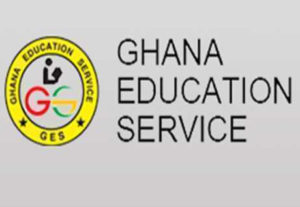It’s unconstitutional for CSOs to become members of GNECC
 The Africa Education Watch on Wednesday said an attempt by the Ghana Education Service (GES) to compel Non-Governmental Organisations and Civil Society Organisations to become members of Ghana National Education Campaign Coalition (GNECC) amounts to a breach of the 1992 Constitution.
The Africa Education Watch on Wednesday said an attempt by the Ghana Education Service (GES) to compel Non-Governmental Organisations and Civil Society Organisations to become members of Ghana National Education Campaign Coalition (GNECC) amounts to a breach of the 1992 Constitution.
It said GNECC is a private voluntary association like any CSO or NGO, therefore asking others to become a member as a pre-condition for certification to operate as an Education Sector NGO or CSO was in explicit breach of the Freedom of Association under Article 21 of the 1992 Constitution.
This was contained in a statement signed by Mr Kofi Asare, the Executive Director of the organisation and copied to the Ghana News Agency in Accra.
The organisation further said that an attempt by the GES to regulate CSOs whose objectives included the demand for accountability from the Service amounted to an effort to allegedly constrict the civic space and stifle civil society voice and influence same.
“The strategy of commissioning CSO networks as agents of a government agency, GES to coordinate and regulate the activities of CSOs and report to same [GES], is alien to the Civic Mandate, as it invariably makes CSO networks agents of the same government agency it is expected to demand accountability from.
“This approach weakens the Civil Society’s ability to demand accountability and, indeed, blurs accountability. The contradiction must not be encouraged or supported by any development partner,” the statement said.
The statement rather recommended that GES strengthens their District Education Offices’ capacity who the NGOs and CSOs have worked closely with over past two decades, to continue to ensure synergy, information sharing and participation between the Service and CSOs.
“The GES, led by their District Education Directorates, may undertake District Level orientation for education NGOs and CSOs on the Education Strategic Plan to ensure a much deeper appreciation by NGOs and CSOs.
“The policy objectives and the local contexts within which their activities must situate or align”.
He said “NGOs and CSOs may be required to submit their Annual Reports to the GES at the district or national level, depending on their operation level.
“That has been the practice with the Department of Social Welfare as a pre-condition for the annual renewal of one’s Social Welfare Certificate,” it added.
The Ghana Education Service (GES) is pushing through a policy to certify and regulate CSOs working in education effective February, 2021.
The policy if implemented would demand that NGOs and CSOs working in the Education Sector meet certain criteria before being allowed to operate.
The conditions includes being a paid-up member of the Ghana National Education Campaign Coalition (GNECC), pays an NGO/CSO application fee to GES, and GES approves one’s activities.
The statement however, noted that while the GES had the mandate to implement pre-tertiary education policies, they were not a regulatory agency.
“Only Department of Social Welfare and the Registrar General’s Department are legally mandated to regulate companies, including NGOs/CSOs,” it explained.
Source: GNA
